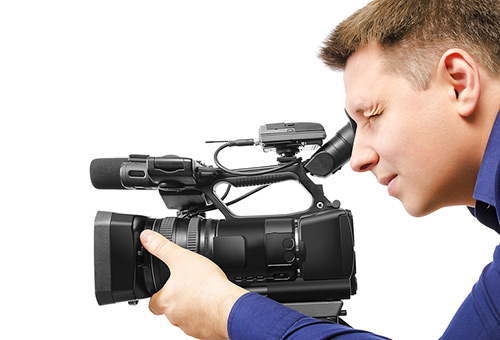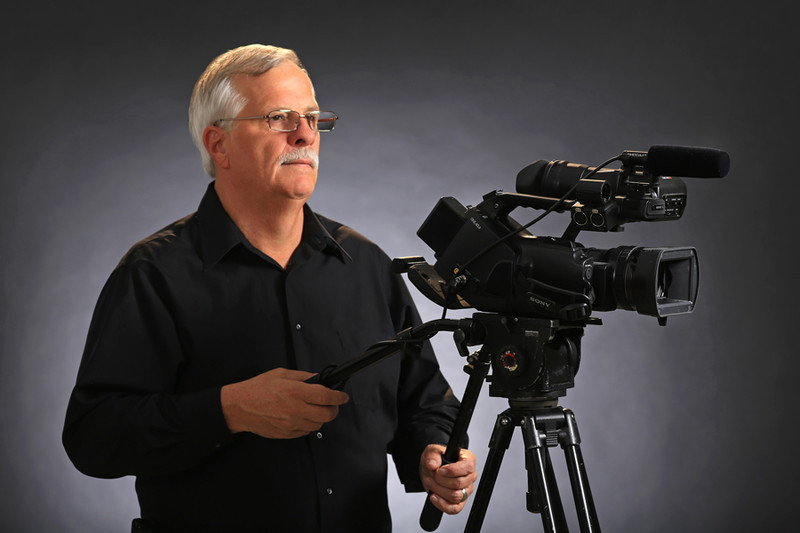Flexible Legal Videography for Your Legal Needs.
Flexible Legal Videography for Your Legal Needs.
Blog Article
The Duty of Legal Videography in Depositions and Trials
Lawful videography has arised as a necessary tool in both depositions and tests, supplying a multifaceted strategy to documenting witness testaments. As legal experts increasingly acknowledge its value, it motivates a deeper assessment of how these visual documents can influence juror understandings and test outcomes.

Value of Lawful Videography
Legal videography plays a critical duty in the documentation and presentation of depositions and trials. This specific area combines technical abilities with lawful expertise to create a trustworthy document of proceedings that can substantially affect case results. The appearance of lawful videography boosts the understanding of witness testimony, allowing jurors and judges to observe not only the spoken words however likewise the demeanor, emotions, and body language of the witnesses.
Furthermore, lawful videography provides an objective account of occasions, decreasing the possibility for false impression that can accompany created records alone. This visual documentation works as an essential tool throughout test presentations, facilitating a clearer and even more convincing narrative for both plaintiffs and offenders. The capacity to replay video clip sections during court proceedings makes it possible for lawful teams to stress crucial points, reinforcing their debates successfully.
The significance of lawful videography prolongs beyond the court; it also plays a crucial function in maintaining evidence for future reference, whether for charms or further lawsuit. Therefore, its integration right into the lawful procedure is important for guaranteeing a reasonable and accurate depiction of the facts, ultimately contributing to the pursuit of justice.

Process of Legal Videography
While catching the subtleties of depositions and trials, the process of legal videography includes a number of critical steps that guarantee top notch, exact recordings. Initially, an expert lawful videographer prepares by assessing the instance products and understanding the specific requirements of the deposition or trial. This prep work consists of acquainting themselves with the participants and the context, which assists in catching significant information.
On the day of the recording, the videographer establishes up the essential tools, which commonly consists of high-def cams, microphones, and appropriate illumination. Making sure ideal angles and sound quality is crucial, as it straight influences the performance of the recording. The videographer communicates with attorneys and individuals to develop procedures, guaranteeing that everyone understands the recording procedure.
During the deposition or trial, the videographer carefully tape-records the procedures, paying very close attention to both spoken and non-verbal signs. This includes capturing the disposition and reactions of witnesses and lawyers. After the session concludes, the videographer might edit the footage for quality and compliance with legal criteria, creating an end product that accurately mirrors the procedures for future reference and usage in legal contexts.
Advantages in Depositions
The consolidation of videography in depositions provides countless benefits that improve the overall procedure of gathering proof. One main advantage is the ability to catch witness testimonies with visual and auditory integrity, providing a much more exact depiction of the witness's temperament, tone, and body language. This multidimensional approach permits attorneys and juries to assess credibility better than traditional written records alone.
Additionally, videographed depositions function as a powerful tool for maintaining testimony. Must a witness become not available for test, their videotaped deposition can be played in court, making sure that their proof remains easily accessible and pertinent. This aspect dramatically reduces the danger of shedding vital information that might affect instance outcomes.

Finally, videography improves the general expertise of the deposition procedure, instilling self-confidence in customers relating to the thoroughness of their legal representation (legal videography). By leveraging technology, lawyers can considerably enhance the performance of depositions
Influence on Tests
In lots of trials, the integration of videography can dramatically affect the presentation of evidence and the court's understanding. Legal videography captures witness testaments and important evidence in a dynamic layout, enabling jurors to engage with the material on multiple degrees. This visual component boosts the storytelling aspect of a test, offering context and emotional vibration that typical text-based proof may do not have.
Furthermore, video clip recordings can act as powerful devices for impeachment during interrogation. When inconsistencies develop between a witness's previous statements and their court room statement, video clip evidence gives an objective referral that can persuade jurors' viewpoints. This immediacy and clearness can reinforce the integrity of a party's story while concurrently undermining opposing disagreements.

Future Trends in Legal Videography
As we look toward the future of legal videography, several emerging trends promise to reshape its role within the courtroom. One significant trend is the integration of expert system (AI) in video clip evaluation and editing and enhancing. AI can enhance the procedure of determining crucial moments in tape-recorded depositions, allowing attorneys to quickly access relevant web content, therefore improving performance in case preparation.
Additionally, the rise of digital truth (VR) and augmented fact (AR) modern technologies is anticipated to transform exactly how jurors experience evidence. legal videography. By immersing jurors in a substitute atmosphere, these technologies can provide an extra profound understanding of complex circumstances, causing more enlightened considerations
Furthermore, Check Out Your URL the increasing need for remote depositions, sped up by the COVID-19 pandemic, will likely proceed. Legal videographers will require to adapt to brand-new software application and systems to make sure top notch recordings in virtual setups.
Lastly, the expanding emphasis on information safety and security will certainly require more stringent protocols for storing and sharing video clip proof. As the legal landscape advances, legal videographers have to stay abreast of these fads to maintain their importance and effectiveness in the judicial procedure.
Conclusion
In summary, legal videography serves an essential feature in the judicial procedure, improving the honesty of depositions and trials. By recording the nuances of witness statements, this tool not only maintains important proof but likewise help in offering information successfully to jurors. The importance of visual documents in reviewing integrity and facilitating cross-examination can not be overemphasized. As modern technology continues to develop, find more lawful videography is positioned to more transform its function within the legal landscape.
Report this page